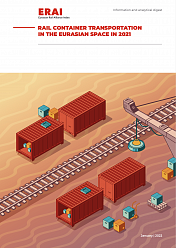According to Xinjiang Railway, the railway line runs from the border station in Alashankou City, passing through Bole East to Jinghe Station, a line with a total length of 70 kilometres. It has a design speed of 120 kilometers per hour and the line will be electrified. The construction period is 2 years.
The Lanxin Railway won the bid for the project. Apart from a second track, Alashankou terminal will be upgraded with a new inspection site and container reloading site. According to Xinjiang Public Resources Trading Network, the total amount of the bid for this expansion project is about 1.5 billion.
Silk Road hub
The Jinghe-Alashankou section is part of the Lanzhou-Xinjiang Railway, and Alashankou is one of the most used border stations with Kazakhstan. From here, trains from Europe enter China, and trains from China start their journey to Europe.
Due to the continuously growing rail freight volumes, however, congestion at the border station is frequent, and the full potential cannot be reached. With the expansion of capacity, more trains can be handled. The process of container relocating will be more efficient, and the customs clearing will be improved.



